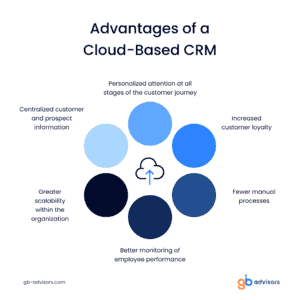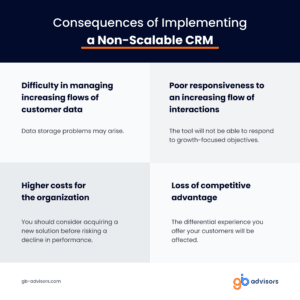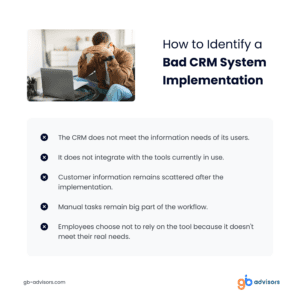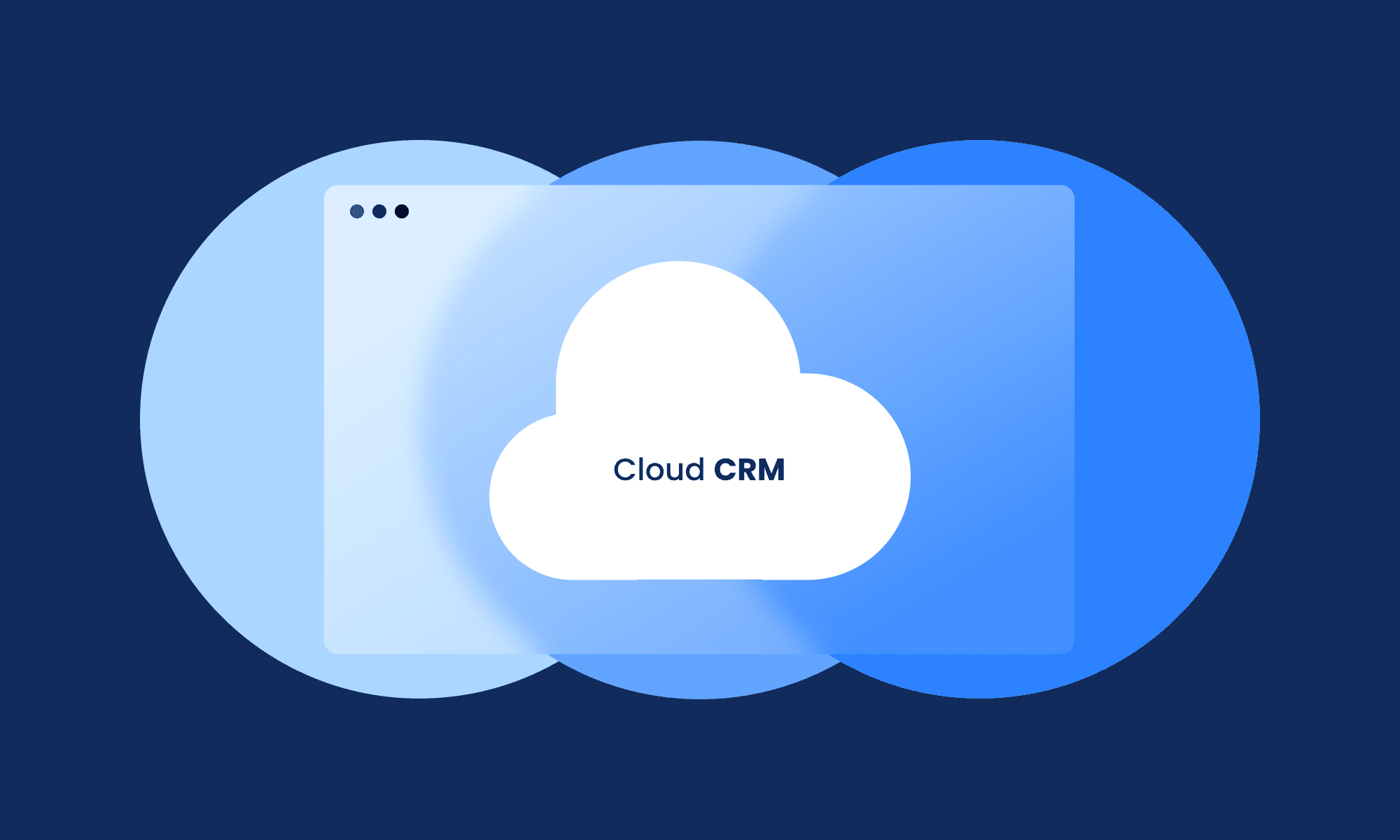When improving your customer experience, having a trained staff and a CRM system is a must. However, sometimes this is not enough.
You need to be aware of several things about the CRM you are choosing in order to succeed.
Here is a list of the five main requirements or features that you should take into account to choose the ideal CRM system and strengthen the relationship with your customers:
Top 5 must-have features when choosing a Cloud CRM system
1. CRM System Benefit/Cost Ratio
When implementing any software, you need to evaluate the benefit/cost ratio it offers.
Investing in a cloud-based CRM may seem expensive at first.
However, for the project to succeed, it is necessary to study aspects such as long-term costs and the benefits that the tool will bring to your organization.

In this regard, we recommend taking into account the following aspects:
Licensing Coverage
Licenses for cloud-based CRM systems generally cover installation, configuration, training, and upgrades.
Other CRMs include customization and extension of licenses to additional equipment or devices.
Whatever the case may be, the initial price will increase depending on the number of services and special features included in the deal.
Integration
The CRM you decide needs to be compatible with the platforms and tools they already use at your company.
This way, you will get the most value for your investment, and it will be cost-effective.
With this, you won’t face additional costs for last-minute adaptations (your employees will thank you!).
Automation capability
You should evaluate the CRM’s ability to automate existing workflows and tasks within the area that will use it.
Customization
Why is this important? Because this will let you know if the tool can adapt to the aesthetics and functionality of the company without heavy technical work.
Reports
To ensure continuous improvement, the CRM must allow you to generate reports to evaluate performance.
However, beyond the benefit/cost ratio of this investment, let’s look at it from another perspective:
What costs more in the long run? Investing in CRM software adapted to your needs, or having a cheap solution in place that harms your relationship with customers?
Only you can answer this question, but I think we both know that sacrificing the quality of the customer relationship can never be an option for those businesses that want to stay in business for the long term.
2. Define Your Business Objectives
You need to know where you are going as a company. This way it will be easier to fit this new tool into the strategies in place.
By having clear business objectives, you will know which areas can benefit from their implementation.
Each of these areas will yield a list of special requirements that will serve as a complementary guide to measure the complete performance of your company in real numbers at the end of each month.
Finally, remember to put yourself in your customers’ shoes to profile their needs and integrate them with your business objectives. The CRM system will help you manage and solve them better.
3. CRM System Scalability
Scalability is the element that will determine the long-term success of your initiative.
When choosing the CRM, your company needs to ask itself:
Will it have the capacity to adapt and grow with your company?

As a buyer, you must protect your investment by ensuring the cloud-based CRM chosen doesn’t fall short in regard to organizational growth.
If it is not scalable, soon rather than later, you will need to consider purchasing another tool that does meet your organization’s new needs.
Ultimately, this will represent higher costs and uncertainty for the organization, threatening performance and efficiency in the face of possible bottlenecks.
In addition, this is also important to ensure a return on investment.
4. Review The Product’s Reputation
Regardless of the type of CRM you plan to purchase, you must research the options you have on the table.
Visit online forums, compare reviews, and analyze the use cases, success stories, and product comparisons.
This will give you a more complete and humanized view of what the tool will offer your organization.
We also recommend that you take the time to review your objectives, needs, and expectations, contrasting this information with the different CRM options you have at hand.
5. Installation Features, CRM System Deployment
Last but not least, you should also consider aspects such as CRM system installation and deployment.
CRM On Demand (SaaS) vs. CRM On-Premise
When contemplating the implementation of a CRM system in an area of your organization, you must identify whether you require a Software as a Service (SaaS) solution or an On-Premise solution.
Which is better for your company?
CRM On Demand (SaaS) is the ideal option for organizations that already have digitalization initiatives in place.
This type of CRM is deployed directly from the cloud and offers many advantages for adoption:
- Speed of implementation and deployment.
- Security, encryption, and protection of keys and data.
- Upgrades.
- Network performance.
On the other hand, concerning locally installed CRMs (On-premise), they fit in large companies, with robust IT infrastructures and areas.
Why? Because local installation allows more direct access and manipulation of data, which responds to security reasons, data backup, and professional zeal.
Deployment
One aspect to consider when choosing software (whether it is On Demand or On-Premise) is the assistance during the implementation and configuration of the tool.
If your organization has a robust and highly qualified IT area that can take care of a project like this, you can rest assured.

However, the most advisable thing to do in any case is to seek technical support from certified experts in both the tool you have selected and in the implementation of similar tools in organizations like yours.
Choosing a supplier/advisor to support you in the acquisition of the software, its installation, configuration, and use, can make the difference between the success and failure of your initiative.
Conclusion
You already know that to choose and implement a CRM system (either in the cloud or On-Premise), you must take into account the following:
- Does it offer me a good cost/benefit ratio?
- Does it meet your organization’s business objectives?
- Will it be scalable with the growth of the organization?
- Does the vendor have a good reputation?
- Can I install it or do I need specialized help?
Once you have all these questions covered, you can be sure that the choice, implementation, and start-up of the CRM system will be closer to success and the improvement in processes and performance you were looking for.



